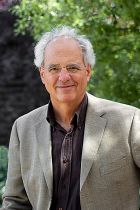Featured Researcher: Ronald Lee
Ronald Lee is a Research Associate of the NBER's program in aging.
Lee is a Professor of Demography and Economics at the University of California, Berkeley. At Berkeley, Professor Lee holds the Edward G. and Nancy S. Jordan Endowed Chair in Economics and is the Director of the Center on the Economics and Demography of Aging and of training grants from NIA and NICHD. Prior to joining the Berkeley faculty, Professor Lee taught at the University of Michigan.
Professor Lee holds a Ph.D. in Economics from Harvard University and an M.A. in Demography from the University of California, Berkeley. He spent a postdoctoral year at the National institute of Demographic Studies (INED, France). He received his B.A. in philosophy from Reed College, after which he served for two years in the Peace Corps in Ethiopia where he taught math, physics and history in high school.
Professor Lee's current research includes the National Transfer Accounts (NTA) project, which is directed jointly with Andrew Mason. This project estimates the aggregate flows of income from one age group to another cross-sectionally through public and private transfers, and across age and time through assets, for nations around the world. These data then form the basis for comparative international studies of transfer systems, how they differ across levels of economic development, cultures, institutions and government policy environments, and how they are stressed by changing population age distributions across the demographic transition and as projected into the future. This project starts by estimating age profiles of consumption and labor income, and considering their variations across countries and over time.
Lee also works on the evolutionary theory of life histories. Why has a U-shaped age pattern of mortality evolved for many species including humans? Why do humans and a few other species have extensive post-reproductive survival? How are these patterns related to intergenerational transfers and parental investment in offspring? Why is human fertility so low? These and related questions are investigated using various methods including dynamic optimization, comparative steady states, and micro-simulation of populations subject to mutations that affect their age specific mortality, and that live in groups within which food is shared, as did our hunter-gatherer forebears.
Professor Lee has received the Population Association of America's Irene B. Taeuber Award for outstanding contributions in the field of demography and the Mindel C. Sheps Award for research in Mathematical Demography. He has received numerous research grants from the National Institute on Aging including two MERIT awards, as well as grants from the National Institute of Child Health and Human Development and the Social Security Administration.
Professor Lee is an elected member of the National Academy of Sciences, the American Association for the Advancement of Science, the American Academy of Arts and Sciences, and the American Philosophical Society, and is a Corresponding Fellow of the British Academy. He is a past President of the Population Association of America, has chaired the population and social science study section for the National Institutes of Health, and has served on the NIA Council and is currently on the NICHD Council. He is an Associate Editor of the Journal of Population Economics and the Review of Economics of the Household and a member of the Editorial Board of the Journal of Population Ageing.
His wife is Melissa Nelken, and they have three daughters. In his spare time, he enjoys tennis and hiking.



